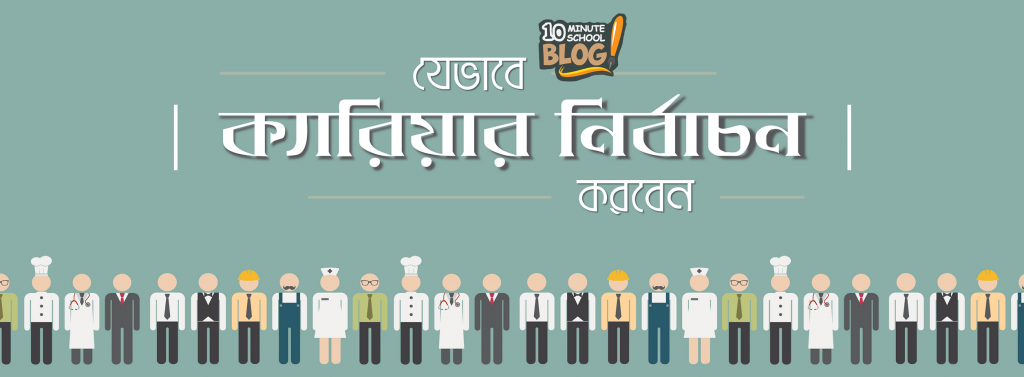There’s a misconception that improving vocabulary refers to mastering the English language. Vocabulary and language are two different things. Vocabulary is a part of the language. Whereas language encompasses a wide variety of topics including grammar, terminology, literature, etc. We need to clearly distinguish the difference before starting with it.
What is Vocabulary?
Simply put, vocabulary means the set of words a person knows. Vocabulary develops with age and communication experience. A language has an unlimited number of words. The words we are familiar with will count as our vocabulary. Acquiring an extensive vocabulary is the most critical part of learning a second language.
Once your vocabulary is enriched enough to communicate with others, you are good to go in-depth. So, vocabulary is the gateway to any language. To say, if you want to learn French, get used to the words first. If you want to excel in English in your admission test, get a huge amount of known words in your bucket first!
15 Great Tips to Improve Your Vocabulary
When you have a wider vocabulary in your list, your work is half done. Check out these 15 great tips to build your vocabulary proficiency–
1. Learn, learn and learn
The first step is to learn new words. Seeking to know newer words is the only way to get a head-on in your journey to improve your expertise in any lexicon. Whenever you see a new word go about finding its meaning. Set your goal of learning a minimum amount of words each day.
2. Don’t forget the synonyms and antonyms
When you’re learning a new word, explore its synonyms and antonyms altogether. It will give you a better understanding of the word and its in-depth meaning. In particular, if you’re learning the word ‘Exaggerate’ learn its synonym – ‘overdraw, overstate, amplify, prolong’ etc. Also know what the antonyms will be – ‘understate, play down’.
3. Know how to pronounce it
The written words can be deceiving. When you’re learning the word ‘Exaggerate’ you should immediately know how it is pronounced. Practice several times saying ‘iɡˈzajəˌrāt’. You surely don’t want to embarrass yourself in public by saying ‘igzagaret’!
4. Read more
Read articles, blogs, newspapers (Both online and offline), books (both fiction and non-fiction), magazines, etc. of the language that you want to improve your lexicon. When you come across an unknown word, you’d struggle to know the context of the sentence. Hence, you’ll seek the meaning and learn where and how to use it.
কোর্সটি করে যা শিখবেন:
সবার জন্য Vocabulary
5. Listen
Listen attentively to the events, conversations, music as much as you can. It is the most popular and fun way of getting to know terms while immersing yourself in their culture.
6. Keep a dictionary
Being able to find the meaning whenever you can is a good way not to leave out the unknowns. It’s better to install a free offline dictionary on your smartphone. You can look up anytime you want while swapping the languages.
7. Write down
Note down the learned words on a notepad. Look over the note periodically not to forget them. You can either keep a journal or keep a digital notepad on your phone or computer.
8. Use the thesaurus
If you think you have a tendency of using a word again and again use a thesaurus where you can find its synonyms of it. It will help to make your writings interesting and not make them look monogamous.
9. Converse more
There’s an 85% chance of forgetting the learned word if you don’t use it in your day-to-day conversation. Find a partner with whom you can talk about different topics. As a result, you can build vocabulary into speech-making you more proficient in that language.
10. Text and trial
In this modern era, we text people for numerous reasons. We can use new words instead of words that we usually use. For example, instead of saying ‘help Karim’ we can write ‘cooperate Karim’.
11. Subscribe to “Word of the day”
To assist you to develop your vocabulary, certain web platforms will send you a new word every day, either through a website, an app, or an email.
These words can be added to running word lists.
12. Use flashcards
Flashcards are simple and easy to arrange in today’s digital era, thanks to a variety of smartphone apps. Using flashcards to learn a handful of words is a simple approach to expanding your vocabulary. It’s appropriate to set a goal of learning one new word every day. You may always strive for more, but it might not be practical to learn dozens of foreign terms every day.
13. Link words
Some words are a part of the prevailing language but may have originated from a different language. Words like budget, challenge, and discount are English words but they made their way from French long back. Understanding the origins gives a clearer meaning to our brain. Also, the knowledge of suffixes and prefixes facilitates vocabulary-building tactics.
14. Make a red list
Sometimes we make mistakes with the same word over and over again. For instance, is it easy to remember words like Kerfuffle, Bequeath, Cattywampus, Snickersnee, Quire?! If you think NO as well, you should make a list of the words that you often stumble on and give them special attention once a week.
15. Take the regular test
Learning isn’t the only way to go to the peak. You’ll need to put your vocabulary to the test regularly using the tactics outlined above, and a quick test will be required once in a while. You often need to justify if the methods used for learning were fruitful.
Final words
A rich vocabulary is associated with greater academic and career performance. We cannot expect to improve vocabulary overnight. We need dedication, perseverance, and most importantly the interest in developing so.
Hopefully, by following the strategies written above, your vocabulary competence will reach a height where you’ll no longer feel scared to communicate whenever and wherever you need to.
IELTS-এর ফ্রি ক্লাসে জয়েন করতে ক্লিক করুন এই লিঙ্কে: Book Your Free Class @ 10MS English Centre, Uttara
খুব সহজে ইংরেজি শিখতে আজই এনরোল করুন আমাদের ফ্রি কোর্সগুলোতেঃ
- Study Abroad Complete Guideline
- English For Everyday
- Academic English Grammar
- English Grammar Fundamentals
- Pronunciation Mistakes
- Grammar Foundation Course
আমাদের কোর্সগুলোতে ভর্তি হতে ক্লিক করুন:
- IELTS Course by Munzereen Shahid
- IELTS Mock Test Solutions by Munzereen Shahid
- ঘরে বসে Spoken English Course by Munzereen Shahid
- সবার জন্য Vocabulary by Munzereen Shahid
- Spoken English for Kids by Munzereen Shahid
IELTS নিয়ে গুরুত্বপূর্ণ সব গাইডলাইনের নোটস পেতে ভিজিট করুনঃ
বিদেশে উচ্চশিক্ষার জার্নিটা আরো সহজ করতে পরিপূর্ণ গাইডলাইন পেয়ে যাবেন এই প্লেলিস্টটিতেঃ
- Study Abroad Series | Higher Education | Munzereen Shahid
১০ মিনিট স্কুলের ক্লাসগুলো অনুসরণ করতে সরাসরি চলে যেতে পারেন এই লিঙ্কে: www.10minuteschool.com





আপনার কমেন্ট লিখুন